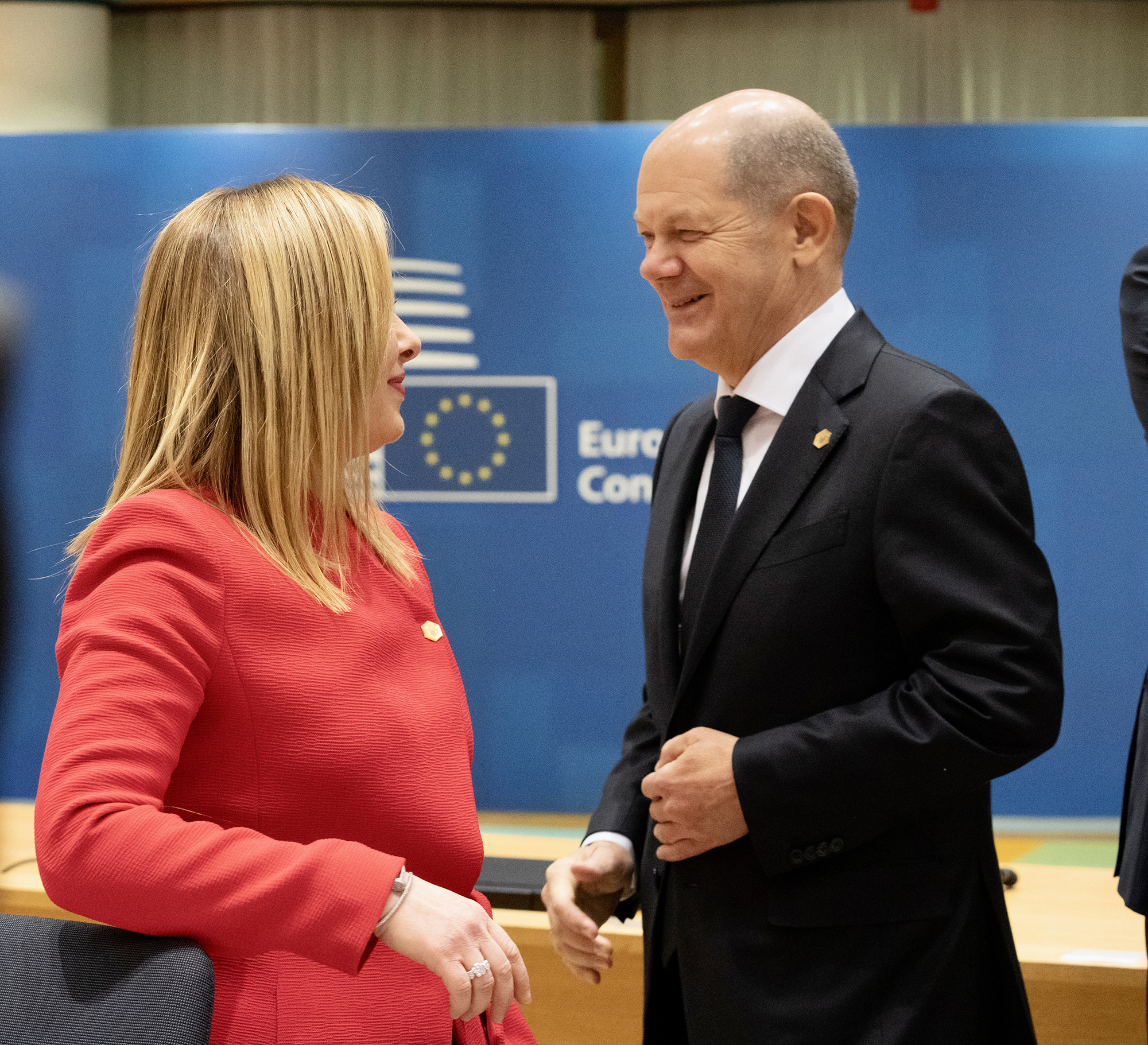Why the Italy-Germany agreement on hydrogen is important

Italy and Germany are joined in the SouthH2 Corridor project, a pipeline for the transport of green hydrogen from North Africa to Italy, Austria and Germany. All the details
The visit of the German Chancellor Olaf Scholz to Rome to meet the Italian Prime Minister Giorgia Meloni has brought to the fore the agreement between the two countries on a project that is already known but little considered in the news. This is the SoutH2 Corridor project (South Corridor), a 3,300 km gas pipeline that will link North Africa to the European continent for the transport of hydrogen produced in North Africa, passing through Italy, Austria and Germany.
THE PARTIES INVOLVED IN THE HYDROGEN GAS PIPELINE
In fact, the gas pipeline operators of these three countries are the major players in the initiative, which should be ready in 2030. The Italian part is made up of 2,300 km of network. For the most part it is an already existing network (73%), which will also be adapted to the transport of hydrogen. 27% will instead be new pipes, ready to transport both gas and hydrogen, with a branch that will also allow export to Switzerland. In Austria, the project will be managed by TAG and Gas Connect, which will provide bi-directional border transport to Slovakia and Germany. Finally, Bayernets will operate the last 300km stretch in Germany, for companies in the Bavarian chemical triangle and the Ingolstadt region. Sea Corridor, a joint venture between Snam and ENI which manages the gas pipeline linking Algeria to Sicily, is also part of the consortium of operators.
BECAUSE IT IS IMPORTANT
The project is very important for a number of reasons. Meanwhile, he points out that the designation of Italy as a gas hub for Europe is increasingly in practice and is now also accepted by Germany (we talked about it in La Verità of 18 March 2022). The Nord Stream gas pipeline disaster was a violent slap in the face for the German government, which has always worked to exclude Italy from its supply routes. Now, however, it is clear that the corridor from the south is the only one viable for northern Europe as well.
Italy, with a relatively small investment (3.2 billion), becomes strategic for the whole of Europe, ensuring the transit of gas and hydrogen for Northern Europe. Above all, by putting the project under the umbrella of sustainability, the project can easily obtain the status of project of common interest from the European Union and therefore benefit from funds and accelerated procedures. Formally, the infrastructure is for the transport of hydrogen, but nothing prevents it from being used for gas, on the contrary. Precisely this double value makes the work precious: the possibility remains to import gas, with a renewed and strengthened infrastructure, thus constituting a strategic safety reserve with respect to the electrification that the Green Deal intends to implement.
THE DIFFICULTIES OF GERMANY
After all, perhaps the idea that gas is downgraded to a safety reserve compared to electricity and hydrogen is not currently in the order of things (and it won't be for long). The energy transition is starting to slow down as its social impact spreads. The German economy is in trouble, having entered a recession after two quarters of negative economic growth. Industrial production is declining, manufacturing orders recorded -11.2% in March and -9.9% in April. Inflation, although down on the previous months, was 6.1% in May. The Minister of the Economy and Vice-Chancellor, the green Robert Habeck, a few days ago at a public event, on the progress of the green policies launched by his government declared: "We are not on the right track, it must be said clearly". Speaking of popular support for green policies, he then said that “perhaps we are moving away from a social majority for change. We've been further along as a society than we are now." The very unpopular law on the mandatory replacement of gas boilers by 2024 with heat pump systems, which according to some estimates involves an average expenditure of 13,000 euros per family, has contributed to the collapse of consensus among the people. The Greens are plummeting in voting intentions, now abundantly surpassed by Alternative für Deutschland. In the latest YouGov poll, the Greens stand at 13% (they were at 22% a year ago) while the right-wing AfD has now reached 20% (it was at 9% a year ago), has overtaken the SPD (19% ) and is now the second largest party behind the CDU (28%).
The position of the semaphore government on the war in Ukraine is another hot front. While the Greens, with foreign minister Annalena Baerbock, are the proud bearers of Ukraine's requests, the social democrat Scholz has been harshly contested in recent days by the left at a public event.
Meanwhile, the Wall Street Journal reveals some details of the investigations that the German authorities are conducting into the sabotage of the two Nord Stream gas pipelines, which took place on September 26, 2022. As far as it appears, the German investigators have reconstructed the itinerary of the Andromeda yacht, which would have delayed around the sites of the explosions in the days immediately preceding. The yacht, identified on the basis of a tip from an Allied secret service, would have departed from Poland, rented with the help of a Warsaw travel agency belonging to a network of companies with relations with the Ukrainian secret services. The Polish authorities were kept in the dark about the investigation and asked to be allowed to examine the material collected by the Germans. "Polish institutions are not involved in this story," specified a spokesman for the Warsaw government. However, the climate between the two countries is tense.
This is a machine translation from Italian language of a post published on Start Magazine at the URL https://www.startmag.it/energia/gasdotto-idrogeno-nordafrica-italia-germania/ on Sun, 18 Jun 2023 05:38:24 +0000.
